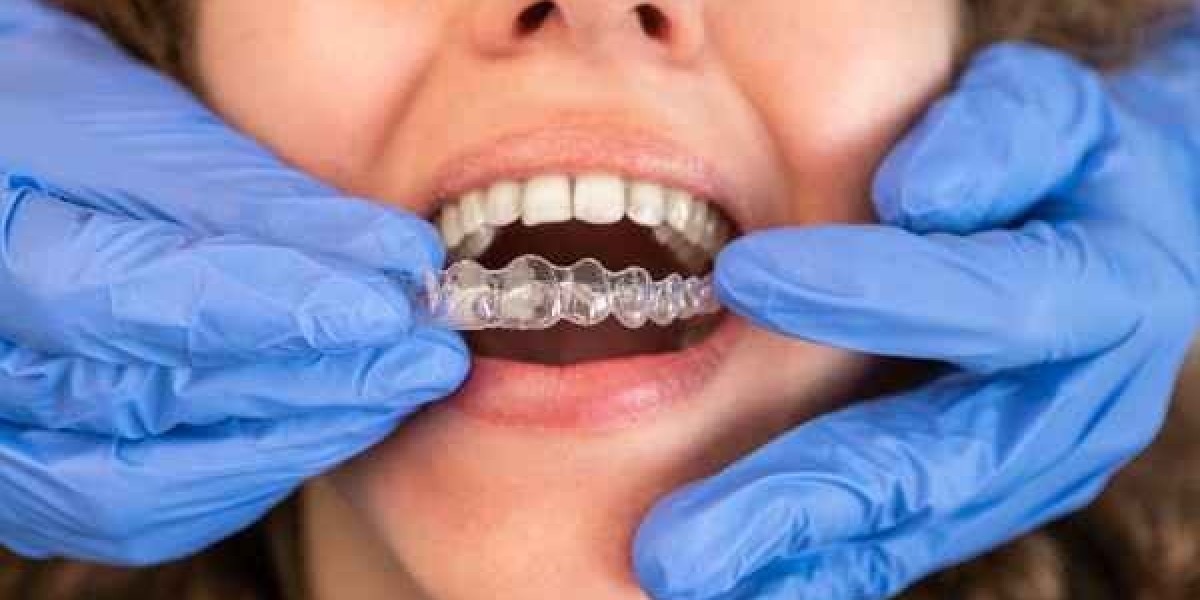Tooth pain and unexpected dental injuries are never convenient. They can throw off your entire day — or night — and leave you unsure of what steps to take next. Should you wait it out, call the dentist, or rush in immediately? In this guide, we’ll walk through common dental emergencies, how to manage them until you’re seen, and what signs definitely shouldn’t be ignored.
Knowing when to seek an emergency dentist in Kirkcaldy could save your tooth — and a lot of stress.
What Counts as a True Dental Emergency?
When It Can’t Wait
Some dental issues need attention as soon as possible. Ignoring them can lead to infection, permanent damage, or more extensive treatment down the line.
Here are signs that you should call an emergency dentist straight away:
Urgent Symptoms | Possible Cause |
Intense, persistent toothache | Infection, abscess, deep decay |
Swelling in face or jaw | Abscess, trauma |
Knocked-out or loose adult tooth | Trauma or gum disease |
Bleeding that won’t stop | Injury or post-surgical issue |
Cracked or broken tooth with pain | Injury, decay, nerve exposure |
Delaying care in these cases could make the problem worse and much more painful.
Common Dental Problems and What You Can Do
Before you get to an emergency dentist in Kirkcaldy, there are a few things you can do at home to manage discomfort and prevent further damage.
Toothache
- Rinse your mouth with warm salt water
- Take paracetamol or ibuprofen as directed
- Avoid chewing on the affected side
- Apply a cold compress to the cheek if swollen
Toothaches often signal something more serious like an infection or decay. See a dentist if pain lasts more than a day.
Broken, Chipped, or Cracked Tooth
- Save any broken fragments in a clean container
- Rinse your mouth with warm water
- Cover sharp edges with dental wax or sugar-free gum
- Avoid biting down on hard foods
These types of damage may not always hurt straight away but can lead to deeper issues. An orthodontist Kirkcaldy may also be involved if the damage affects alignment.
Knocked-Out Tooth
- Hold the tooth by the crown (not the root)
- Rinse gently, but do not scrub
- Try to place it back in the socket or store it in milk
- Get to a dentist within 30 minutes if possible
Acting fast greatly improves the chances of saving the tooth.
Lost Crown or Filling
- Use temporary dental cement (from a pharmacy) if available
- Avoid chewing on the affected side
- Book a dental appointment within 24–48 hours
A missing crown leaves the underlying tooth exposed, increasing the risk of sensitivity or infection.
How Orthodontic Problems Can Turn into Emergencies
When Braces or Aligners Cause Trouble
If you wear braces or aligners, sudden pain or hardware issues can catch you off guard. In some cases, urgent care might be necessary.
Within the first few lines of support or advice, it’s often helpful to involve an orthodontist Kirkcaldy, especially for the following:
- Poking wires: Try covering them with dental wax or pushing them flat
- Loose brackets: Don’t try to glue them back; call your provider
- Pain from shifting teeth: Mild discomfort is normal, but severe pain could need adjustment
An experienced orthodontist Kirkcaldy can make quick corrections to avoid long-term complications or delays in your treatment.
Preventive Steps That Actually Work
Avoiding a dental emergency altogether isn’t always possible, but some habits help reduce the risk significantly:
- Wear a mouthguard during sports
- Avoid chewing hard items like pens, ice, or boiled sweets
- Keep up with regular dental check-ups
- Brush and floss daily, even with braces
- Follow your orthodontist Kirkcaldy’s advice on aligner wear and hygiene
These small steps can help prevent minor issues from turning into major pain.
Simple First Aid for Dental Discomfort
Here’s how to manage symptoms while waiting for professional care:
Take over-the-counter pain relief
Medications like paracetamol or ibuprofen can reduce discomfort and inflammation. Be sure to follow the dosage instructions, and avoid aspirin if there's bleeding, as it can thin the blood.
Rinse your mouth with warm salt water
This helps remove food particles and reduces inflammation. Use half a teaspoon of salt in a cup of warm water and swish gently a few times a day.
Apply a cold compress
For swelling or jaw pain, use a cold pack on the outside of your cheek in 10–15 minute intervals. It helps reduce both swelling and pain.
Avoid very hot or cold foods
Extreme temperatures can worsen pain in sensitive or damaged teeth. Stick to soft, room-temperature foods until you’re seen.
Use dental wax or sugar-free gum
If a sharp edge is irritating your cheek or tongue, a small piece of wax or sugar-free gum can be a helpful temporary fix.
Why You Shouldn’t Wait It Out
It might be tempting to "see how it goes" when dental pain starts. But issues like infections can worsen quickly, sometimes affecting other parts of the body. In the worst cases, untreated abscesses can become serious medical emergencies.
Ignoring signs also means more time, money, and discomfort down the line. Calling an emergency dentist in Kirkcaldy sooner rather than later is always the better option.
When It’s Not an Emergency, But Still Needs Attention
Some dental problems don’t require immediate care but should still be booked in promptly. These include:
- Mild tooth sensitivity
Sensitivity to hot or cold drinks can be caused by worn enamel, early decay, or even recent whitening. While it’s not usually an emergency, it’s worth mentioning at your next check-up. Using sensitive toothpaste may help in the short term. However, ongoing or worsening sensitivity could mean there’s an underlying problem. - A small chip or crack without pain
If your tooth is chipped but doesn’t hurt, you can usually wait a day or two before seeing your dentist. Avoid biting on hard foods to prevent the crack from worsening. A small fracture might still expose the tooth to bacteria or further damage, so don’t put it off for long. Your dentist may smooth it or apply bonding material. - Food stuck between teeth that won’t budge
Trapped food can irritate the gums and cause temporary discomfort or swelling. Try gently removing it with dental floss — never use sharp objects. If it doesn’t come out or keeps recurring in the same spot, it could be a sign of a cavity or a gap needing attention. Book a visit if it lingers more than a day. - Discomfort from recent dental work
Mild soreness after fillings, cleanings, or new crowns is common and usually settles in a few days. Over-the-counter pain relief and avoiding hard foods can help. If the discomfort gets worse, lasts more than a week, or includes swelling, contact your dentist. It may be a sign the adjustment needs tweaking. - Gum irritation that doesn’t improve after a few days
Red, puffy, or bleeding gums could signal early gum disease or poor brushing technique. While not usually urgent, it shouldn’t be ignored either. Switch to a soft-bristled brush and rinse with salt water to calm the area. If things don’t improve in 4–5 days, schedule a dental appointment to rule out infection or gum issues.
Even these minor issues can turn serious if ignored. Your dentist will advise on the best course of action.
Conclusion
When dental trouble strikes, quick thinking and the right care plan can make all the difference. Whether you’re dealing with a knocked-out tooth or braces that just won’t sit right, knowing when to seek help from an emergency dentist in Kirkcaldy or an orthodontist Kirkcaldy is key. A little prevention goes a long way, but when things do go wrong, acting fast matters most.








